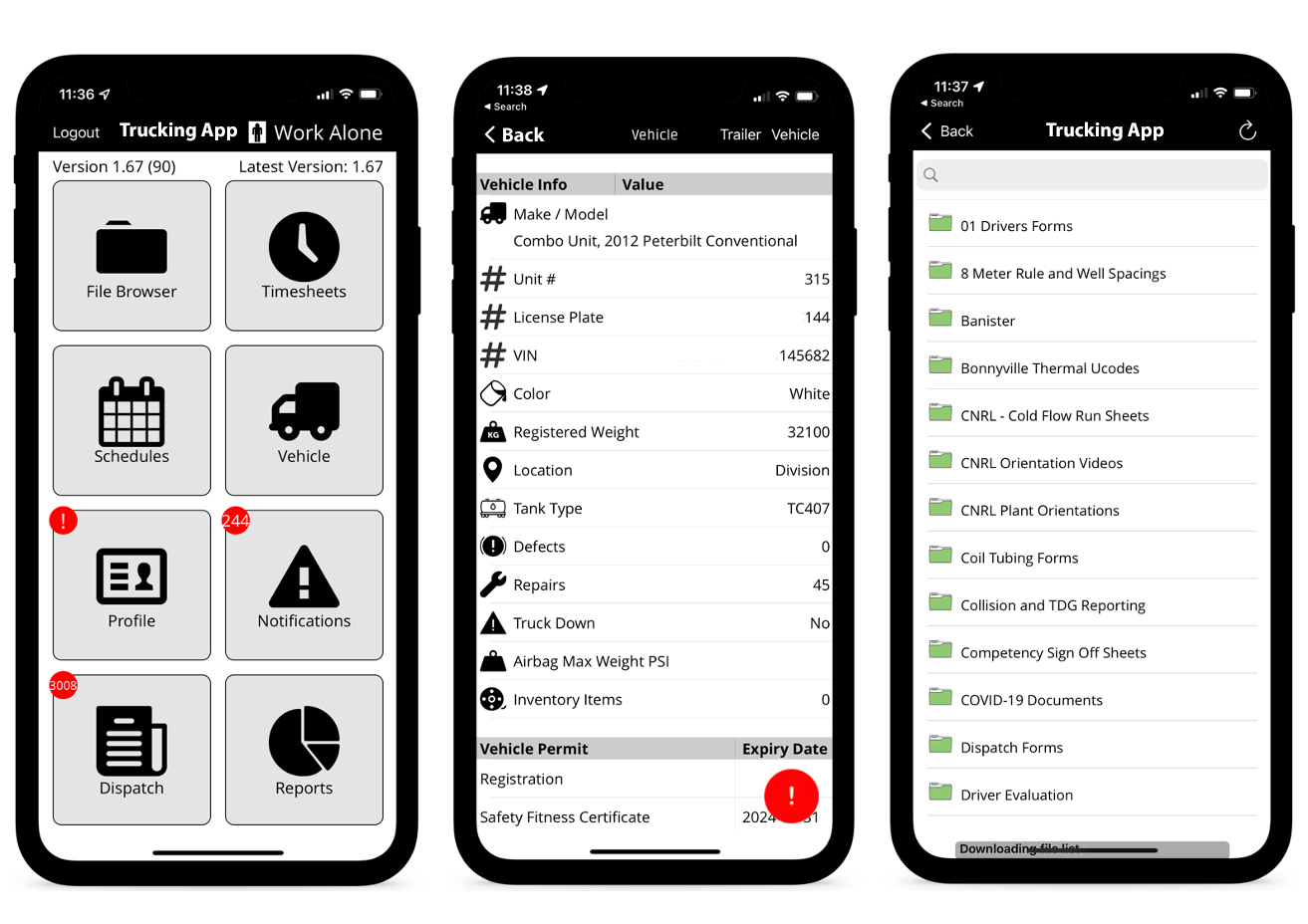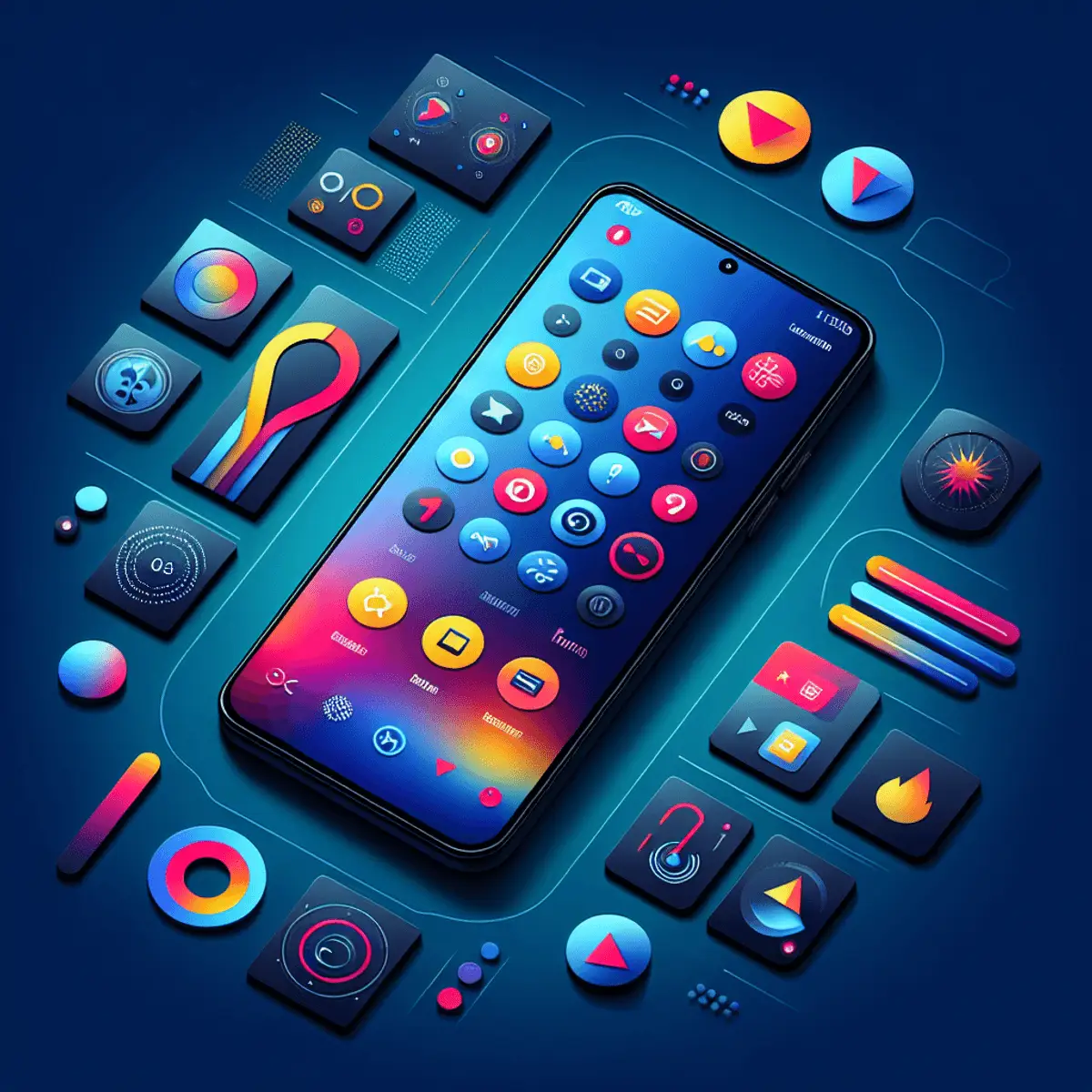
Digital Transformation
 Lets Talk
Lets Talk
Navigating the Waters of Mobile App Development: iOS vs Android
By, Amy S
- 1 Apr, 2024
- 532 Views
- 0 Comment
In the dynamic and swiftly changing landscape of mobile application creation, the ongoing dialogue surrounding the choice between iOS and Android platforms remains at the heart of discussions for developers, entrepreneurs, and technology aficionados across the globe. This pivotal decision transcends mere preference, becoming a strategic business consideration with far-reaching impacts on an app’s journey from concept to consumer success. Selecting the right platform influences not just the initial audience reach and engagement but also dictates the nuances of the app’s developmental journey, encompassing design complexities, ongoing maintenance, and potential for growth.
As we embark on this detailed examination at Digital Fractal, we will uncover the layered aspects of app development on both the iOS and Android platforms, highlighting the specific benefits and challenges each brings to the table. Our aim is to equip developers and businesses with the crucial insights needed to navigate this rapidly evolving tech landscape, making well-informed choices amidst changing user preferences and technological advancements.
Moreover, we’ll explore how these platforms resonate with different business strategies, user expectations, and current market trends, offering a comprehensive perspective that goes beyond mere technical specifications. Grasping these dynamics is vital for anyone aiming to leave a significant imprint in the bustling mobile app market, be it an experienced developer, a budding startup, or a corporate strategist eager to broaden their digital reach.
Join us at Digital Fractal as we delve into the complex decision-making process, from selecting the optimal development environment and tools to understanding the subtleties of user engagement and market penetration on each platform. This exploration is more than a side-by-side comparison of features; it’s about comprehending the wider impact of your platform choice on your app’s performance, user satisfaction, and overall success in the digital realm.



iOS App Development: Precision and Exclusivity
Benefits:- User Engagement and Monetization: iOS users are generally perceived as more willing to pay for apps, offering higher revenue potential for developers.
- Streamlined Development Process: With a limited range of devices and standardized screen sizes, iOS app development allows for a more controlled environment, leading to a smoother development process.
- Security and Quality Assurance: Apple’s strict app review guidelines ensure that iOS apps maintain high-quality standards, offering a secure ecosystem for users.
- Strict Approval Process: The rigorous app review process, while beneficial for quality control, can be a significant hurdle, often leading to longer wait times for app approvals.
- Limited Customization: The iOS platform offers less flexibility for customization compared to Android, which can be a constraint for developers looking to innovate.
Android App Development: Flexibility and Reach
Benefits:- Market Reach: With the largest global market share, Android offers unparalleled reach to diverse user demographics, making it an attractive platform for businesses aiming for maximum visibility.
- Open-Source Flexibility: Android’s open-source nature allows for greater creativity and innovation, providing developers with the freedom to experiment and customize their apps extensively.
- Integration and Compatibility: Android’s compatibility with a wide range of devices and integration with various Google services enhance the functionality and user experience of Android apps.
- Fragmentation: The vast array of Android devices with different screen sizes and operating system versions can complicate the development and testing process, leading to increased time and costs.
- Monetization Issues: Despite its wider reach, Android users are generally less likely to purchase apps, presenting challenges in-app monetization strategies.
Building for Both Platforms: Navigating Native and Cross-Channel Development
In the quest to maximize reach and impact in the mobile app market, the decision to develop for both iOS and Android platforms brings forth the critical choice between native app development and cross-channel (or cross-platform) development. Each approach has its distinct advantages and considerations, and understanding these can significantly influence the success and efficiency of your app development process. At Digital Fractal, we specialize in both paradigms, tailoring our approach to best meet your project’s needs and business goals.
Native App Development: Tailored Excellence
Native app development involves creating separate apps for iOS and Android, each optimized for its respective platform. This approach leverages the full potential of the underlying platform’s features and capabilities, ensuring high performance, a seamless user experience, and access to the latest technological advancements. Advantages:- Optimized Performance: Native apps are developed with platform-specific languages and tools, resulting in faster, more reliable, and responsive applications.
- Superior User Experience: By adhering to each platform’s design guidelines, native apps deliver intuitive and immersive user experiences that feel at home on the device.
- Access to Full Feature Set: Native development allows full access to device hardware and software features, enabling the creation of more powerful and feature-rich apps.
Cross-Channel Development: Unified Agility
Cross-channel development, on the other hand, involves using tools and frameworks that enable the creation of a single app that runs on multiple platforms. This approach is known for its efficiency and the ability to streamline the development process by sharing code across platforms. Advantages:- Cost and Time Efficiency: By sharing a significant portion of the codebase across platforms, cross-channel development can reduce development time and costs.
- Simplified Maintenance: Updating and maintaining a single codebase is simpler and more straightforward, allowing for quicker updates and bug fixes.
- Broader Reach with Less Effort: Cross-channel development makes it easier to target multiple platforms simultaneously, ensuring your app reaches a wider audience without the need for separate development teams.
Making the Right Choice for Your Project
The choice between native and cross-channel development hinges on several factors, including your project’s specific requirements, budget constraints, desired app performance, and time-to-market. At Digital Fractal, we engage in a comprehensive consultation process to understand your vision and objectives, guiding you through the decision-making process to choose the path that aligns with your strategic goals. Whether opting for the tailored excellence of native app development or the unified agility of cross-channel solutions, Digital Fractal’s expertise ensures that your app is not only built to perform but also poised to thrive in the competitive app ecosystem.Making the Choice: Factors to Consider
Choosing between iOS and Android app development is a pivotal decision that requires a comprehensive understanding of various factors. These factors are crucial for tailoring your app to meet specific business objectives and market demands. At Digital Fractal, we emphasize a strategic approach to app development, ensuring that your choice between these platforms aligns with your overarching goals. Let’s delve into these factors in more detail:1. Understanding Your Target Audience
Your target audience’s preferences and behaviors should guide your platform choice. iOS users, often found in higher income brackets and certain geographic regions like North America and Western Europe, may offer different engagement and monetization prospects compared to the diverse and vast Android user base prevalent in emerging markets. Digital Fractal’s app development services begin with a thorough market analysis to identify your audience’s characteristics and preferences, ensuring your app resonates with its intended users.2. App Functionality and Performance Requirements
The inherent features and capabilities of each platform can significantly impact your app’s functionality. iOS’s uniform ecosystem allows for seamless integration across devices, offering a consistent user experience. In contrast, Android’s open nature provides greater flexibility but requires careful consideration of device fragmentation. Our team at Digital Fractal leverages native app development to optimize performance and ensure a smooth user experience tailored to each platform’s strengths.3. Development Budget Constraints
Budget considerations play a crucial role in platform selection. The development costs can vary significantly between iOS and Android, influenced by factors like development complexity, testing requirements, and post-launch support. Digital Fractal offers transparent and scalable app development services, helping you navigate budget constraints while maximizing the value delivered to your users.4. Revenue Models and Monetization Strategies
Your app’s monetization strategy should influence your platform choice. iOS users are generally more willing to pay for apps and make in-app purchases, whereas Android’s larger user base might be more conducive to ad-supported revenue models. Our team works closely with you to craft a monetization strategy that aligns with your chosen platform, optimizing revenue generation potential.5. Long-Term Support and Scalability
Considering the long-term trajectory of your app is essential. Platform updates, maintenance, and scalability are critical factors that can impact your app’s lifespan and success. Digital Fractal’s app development services include ongoing support and scalability solutions, ensuring your app remains competitive and functional as technology and user expectations evolve. By carefully evaluating these factors, businesses can make informed decisions that not only align with their current objectives but also pave the way for future growth and success in the competitive app marketplace. Digital Fractal’s expertise in iOS and Android app development ensures that your app not only meets but exceeds user expectations, driving engagement and achieving your business goals.Conclusion: A Balanced Approach
For businesses aiming to maximize their impact in the mobile app market, developing both iOS and Android platforms can be a strategic approach. However, this requires careful planning and consideration of the distinct environments each platform offers. At Digital Fractal, we specialize in providing top-notch mobile app development services, leveraging our expertise in both iOS and Android to create compelling, high-quality applications that meet our clients’ diverse needs. As the mobile app landscape continues to evolve, staying informed and adaptable is key to navigating the complexities of iOS and Android app development. Whether you’re developing an app for iOS, Android, or both, understanding the benefits and challenges of each platform is crucial for success in this competitive domain.
Start your free consultation
Ready to discuss your project idea?
Recent Posts
Category
- Android (10)
- Artificial Intelligence (42)
- Blockchain (2)
- Cyber Security (2)
- Cybersecurity (6)
- Digital Transformation (41)
- Industry News (13)
- Infographics (10)
- iOS (2)
- Mobile App Development (81)
- Software (1)
- Uncategorized (3)
- Web development (11)
- Workflow Automation (3)
All Tag
Archives
- July 2025
- June 2025
- May 2025
- April 2025
- March 2025
- February 2025
- January 2025
- October 2024
- September 2024
- July 2024
- June 2024
- May 2024
- April 2024
- February 2024
- January 2024
- December 2023
- November 2023
- October 2023
- September 2023
- July 2023
- June 2023
- May 2023
- March 2023
- December 2022
- November 2022
- October 2022
- April 2022
- March 2021
- February 2021
- January 2021
- December 2020
- November 2020
- October 2020
- September 2020
- August 2020
- July 2020
- June 2020

